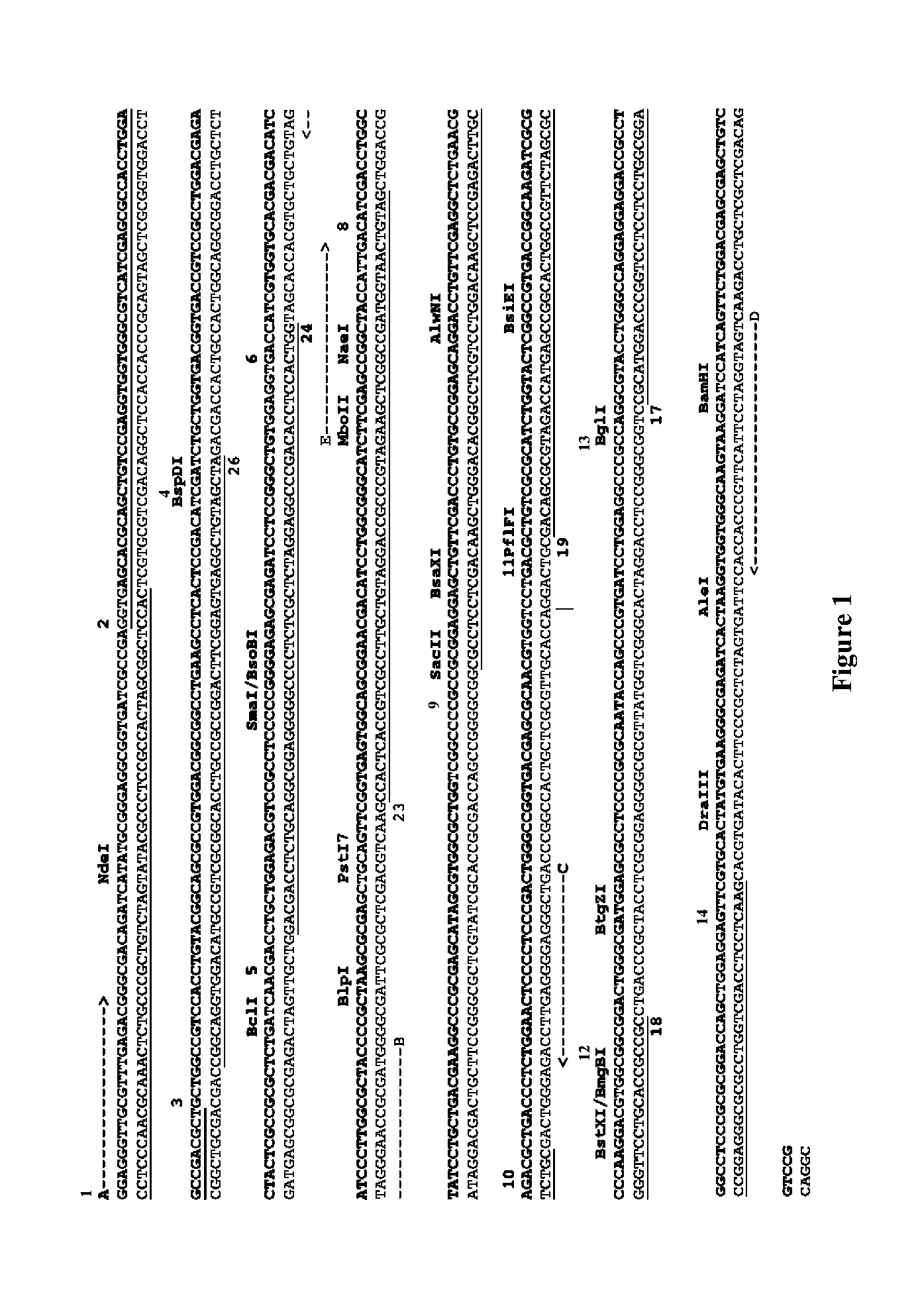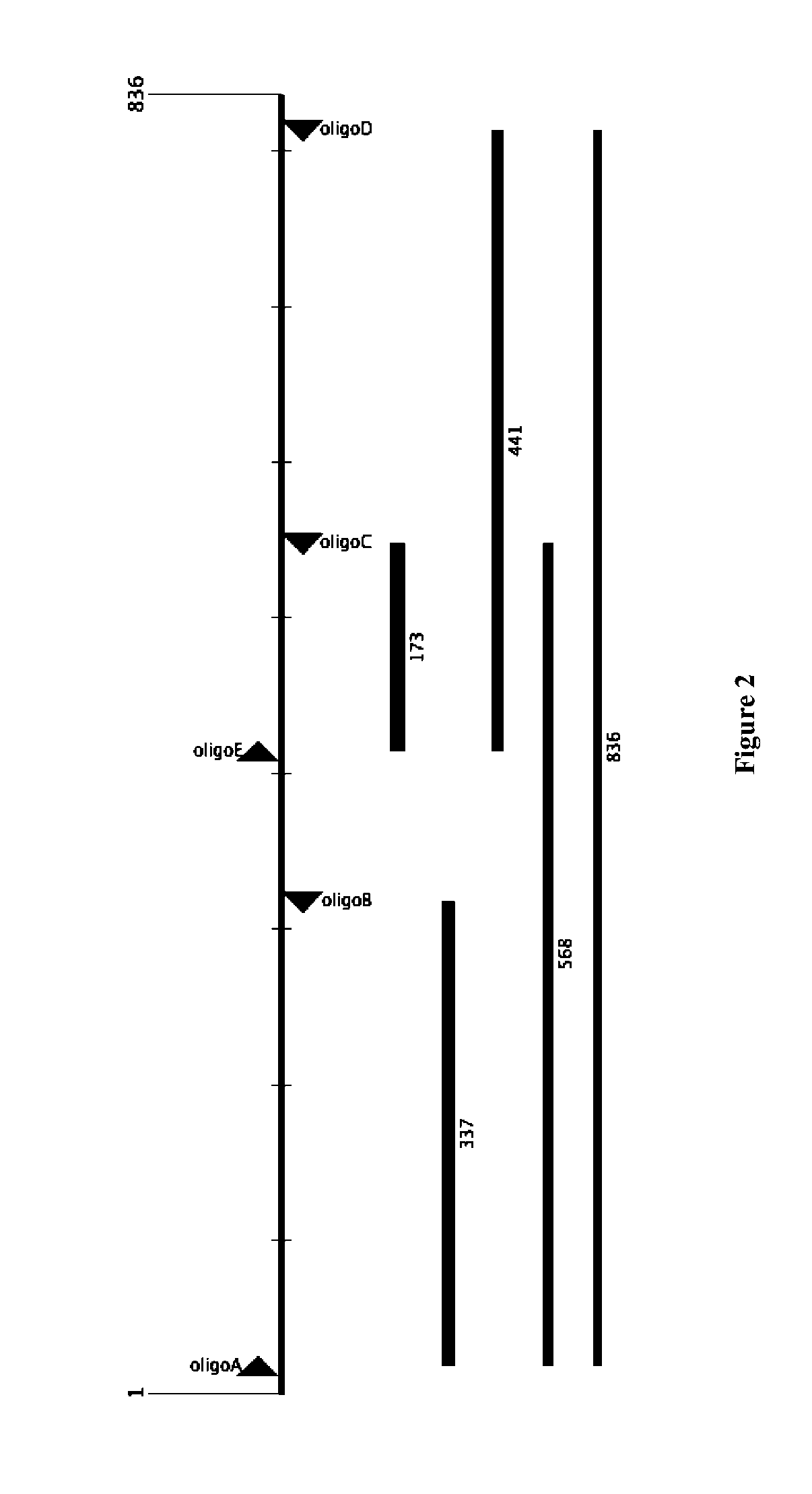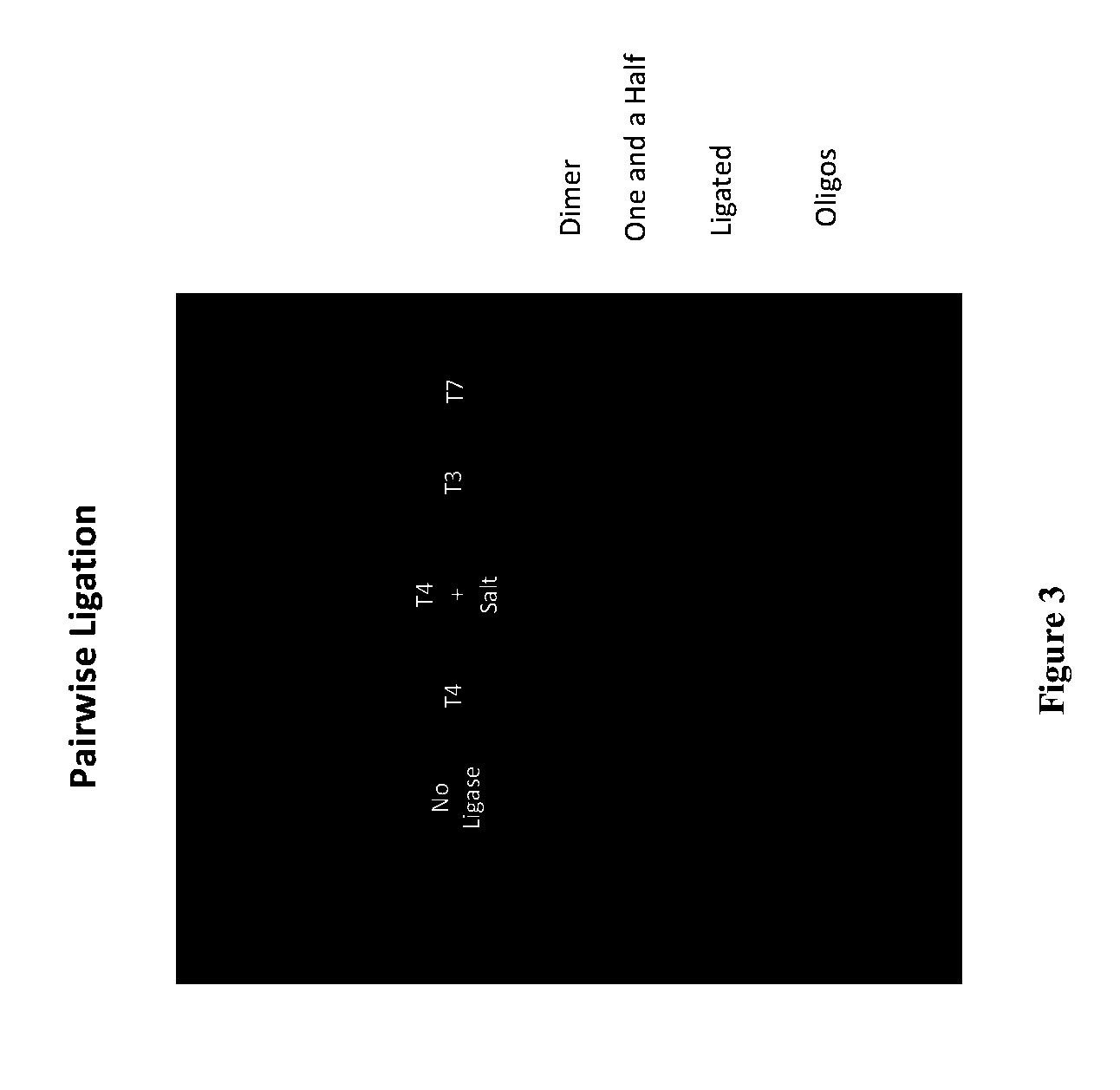Compositions and Methods for High Fidelity Assembly of Nucleic Acids
a nucleic acid and assembly technology, applied in the field of high fidelity, multiplex nucleic acid assembly reactions, can solve the problem of relatively high error rate of assembly techniques
- Summary
- Abstract
- Description
- Claims
- Application Information
AI Technical Summary
Benefits of technology
Problems solved by technology
Method used
Image
Examples
examples
[0139]FIG. 1 shows the sequence of an arbitrarily chosen, double-stranded sequence of about 836 by long. 60-bp fragments were selected and labeled 1 to 28 (fragments 1-14 are on the positive strand; fragments 15-28 on the negative strand). These 60-bp fragments were ordered from IDT (Integrated DNA Technologies, Coralville, Iowa) (“IDT oligos”), with the following flanking sequences:
GTCACTACCGCTATCATGGCGGTCTC . . . . . GAGACCAGGAGACAGGACCGACCAAACAGTGATGGCGATAGTACCGCCAGAG . . . . . CTCTGGTCCTCTGTCCTGGCTGGTTT
Underlined is the recognition site of BsaI-HF, which produces a 4-base overhang:
5′ . . . G G T C T C (N)1▾ . . . 3′3′ . . . C C A G A G (N)5▴ . . . 5′
The BsaI-HF recognition sites are flanked by universal primers which are useful for amplification of these fragments.
[0140]PCR primers A-E were also designed (dashed arrows in FIG. 1) for amplifying the correct ligation product. FIG. 2 shows the relative position of the primers (“oligoA” to “oligoE”) as arrowheads, as well as the pre...
PUM
| Property | Measurement | Unit |
|---|---|---|
| melting temperatures | aaaaa | aaaaa |
| affinity | aaaaa | aaaaa |
| size | aaaaa | aaaaa |
Abstract
Description
Claims
Application Information
 Login to View More
Login to View More - R&D
- Intellectual Property
- Life Sciences
- Materials
- Tech Scout
- Unparalleled Data Quality
- Higher Quality Content
- 60% Fewer Hallucinations
Browse by: Latest US Patents, China's latest patents, Technical Efficacy Thesaurus, Application Domain, Technology Topic, Popular Technical Reports.
© 2025 PatSnap. All rights reserved.Legal|Privacy policy|Modern Slavery Act Transparency Statement|Sitemap|About US| Contact US: help@patsnap.com



